Chinese Double Ninth Festival (Chongyang Festival)
Introduction
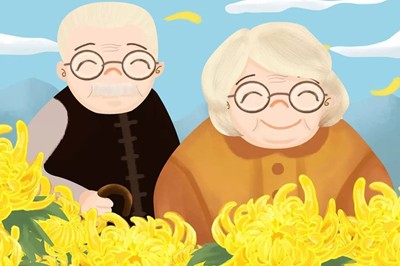 Falling on the ninth day of the ninth lunar month, Chongyang Festival is also called the Double Ninth Festival. It is named as Chongyang Festival because according to the Chinese astrology, nine is a 'Yang' character meaning masculine or positive and 'Chong' in Chinese means double. As both the month and the day are nine, it got this name. To celebrate the day, people usually clime the mountains and enjoy Chrysanthemum, so the festival is also known as Height Ascending Festival or Chrysanthemum Festival. In China, nine has the similar pronunciation with the word meaning 'forever', symbolizing longevity. Therefore, the Chinese government set the day as the Seniors' Day.
Falling on the ninth day of the ninth lunar month, Chongyang Festival is also called the Double Ninth Festival. It is named as Chongyang Festival because according to the Chinese astrology, nine is a 'Yang' character meaning masculine or positive and 'Chong' in Chinese means double. As both the month and the day are nine, it got this name. To celebrate the day, people usually clime the mountains and enjoy Chrysanthemum, so the festival is also known as Height Ascending Festival or Chrysanthemum Festival. In China, nine has the similar pronunciation with the word meaning 'forever', symbolizing longevity. Therefore, the Chinese government set the day as the Seniors' Day.Fast Facts about The Double Ninth Festival
| Chinese Name: | 重阳节Chóngyáng Jié |
|---|---|
| Alternative Names: | Double Ninth Festival, Seniors' Day, Height Ascending Festival, Chrysanthemum Festival |
| Date: | Sep.9th (Chinese Lunar Calendar) |
| Festival Type: | Traditional Chinese Festival |
| Countries/Areas to Celebrate: | China |
| Traditions and Customs: | Showing respect to the seniors, Climbing mountains, Eating Chongyang cakes, Drinking chrysanthemum wine, Enjoying chrysanthemum and sticking chrysanthemum, Inserting Zhuyu (medicinal cornel) |
| Festival Food: | Chongyang Cakes, Chrysanthemum Wine |
Date of Double Ninth Festival
The Double Ninth Festival (Chongyang Festival) falls on the 9th day of the 9th lunar month (usually in October in Gregorian calendar). The following chart shows the exact times for the festival in 2024, 2025 and 2026:
| Year | Date of Chongyang Festival |
|---|---|
| 2024 | October 11th |
| 2025 | October 29th |
| 2026 | October 18th |
Origin and History

The origin of Chongyang Festival is the sacrifice to the fire in ancient times.
The festival has a history of over 2000 years. During the Warring States Period (475 - 221 BC), there has been Chong Yang Festival. But it was only celebrated in the imperial palace. From the Han Dynasty (202 BC - 220 AD), it began to be popular among the common people. The name of the Chongyang Festival first appeared in the Three Kingdoms Periods (220 - 280 AD). During Jin Dynasty (265 - 420 AD), there had been customs of enjoying chrysanthemum and drinking wines on the day. It was not officially set as a festival until the Tang Dynasty (618 - 907 AD). Since then, all the people spend the festival with various activities. In Ming and Qing Dynasties, people in imperial palace all ate flower cakes to celebrate. The emperor climbed the mountain on the day as well. In 1989, the Chinese government set the day as the Seniors’ Day.
Legend
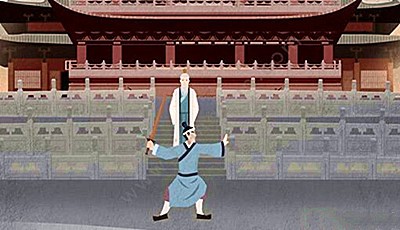 It is said that during the Eastern Han Dynasty (25 - 220 AD), there was a devil of the plague in the Ruhe River. People living around the river suffered a lot from it. As long as it showed up, people would be ill or died. A man named Huan Jing living there almost died caused by this plague. His parents had been died because of this. After recovery, he decided to find the immortals to learn skills for killing the devil. He took a long journey, overcame many difficulties and found the immortal finally. Moving by him, the immortal taught him the skills to defeat the devil.
It is said that during the Eastern Han Dynasty (25 - 220 AD), there was a devil of the plague in the Ruhe River. People living around the river suffered a lot from it. As long as it showed up, people would be ill or died. A man named Huan Jing living there almost died caused by this plague. His parents had been died because of this. After recovery, he decided to find the immortals to learn skills for killing the devil. He took a long journey, overcame many difficulties and found the immortal finally. Moving by him, the immortal taught him the skills to defeat the devil.On the 8th day of the 9th lunar month, the immortal told Huan Jing that the devil would appear again the next day. He gave Huan Jing some Zhuyu leaves and some chrysanthemum wine and let him go back to kill the devil. After coming back, Huan sent everyone a Zhuyu leaf and a glass of chrysanthemum wine. On the 9th day, the devil emerged from the river and became dizzy at once on smelling the scent of Zhuyu and the wine. Huan Jing took his sword out and killed the devil at last. From that time on, climbing the mountain has become a custom to avoid the evil on the 9th day of the 9th month.
Traditions and Customs
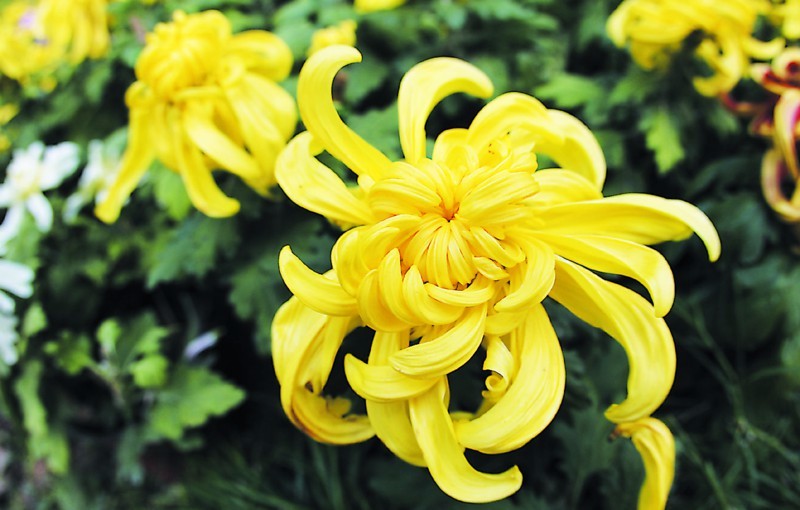
Climbing Mountains
As September has the clear sky and fresh air, it is a very good time to climb the mountain. There will be a sense of exhilaration by climbing the mountain in this season. Also, it is good for health. Since the Western Han Dynasty(202 BC - 9 AD), it has been the custom of climbing on the Chongyang Festival.
Admiring Chrysanthemums
On the day, admiring the chrysanthemum are very popular as the flower symbolize longevity. The flowers are in full blossom those days. Many people will go to the park to enjoy its beauty. Drinking the chrysanthemum wine is regarded as a way to block off disasters and evil things. Sticking chrysanthemum and inserting Zhuyu (Cornus officinalis) are also traditions to avoid the evil as they have special smells which can repel insects and keep out the cold.
Eating Chongyang Cake
Eating Chongyang cake is another tradition on the festival. There is no fixed way of the cake but the one with nine layers with two sheep on it is the best. Two sheep means Chongyang. Nine layers indicate people could progress well in everything.
Show Respect to the Old
Today, the festival is mostly celebrated as the Seniors' Day. On the day, many activities are held to show respect to the seniors such as organizing a trip for them, sending them gifts and more.
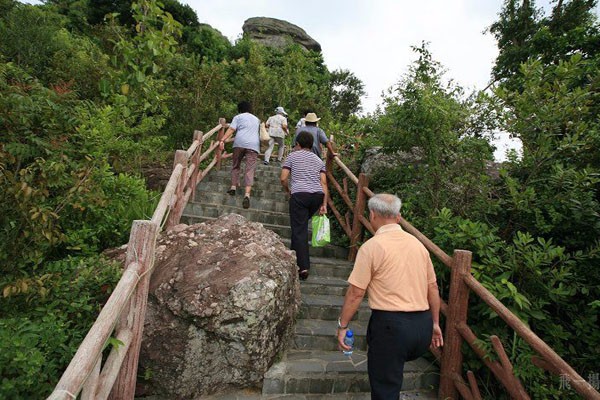
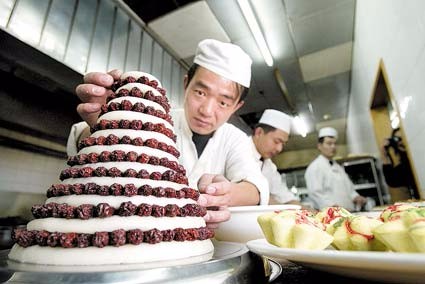
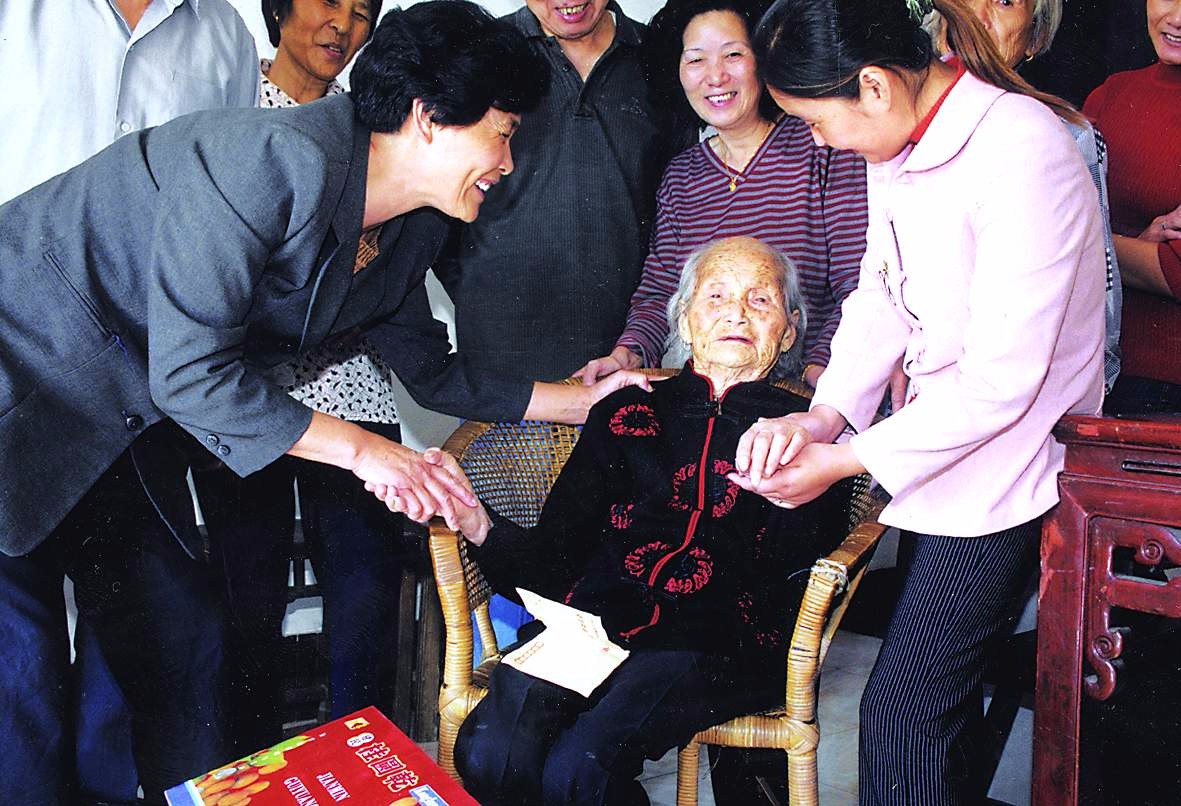
A Famous Chinese Poem for the Double Ninth Festival
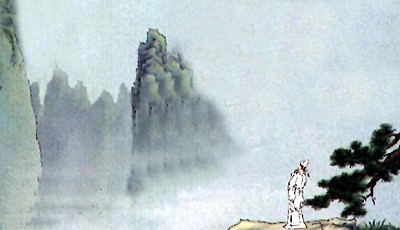 九月九日忆山东兄弟
九月九日忆山东兄弟
(jiǔ yuè jiǔ rì yì shān dōng xiōng dì)
Double Ninth, Remembering my Shandong Brothers
By:
[唐] 王维
([táng] wáng wéi)
[Tang] Wang Wei
独在异乡为异客 ,
(dú zài yì xiāng wéi yì kè)
As a lonely stranger in a foreign land,
每逢佳节倍思亲 。
(měi féng jiā jié bèi sī qīn)
I am twice as homesick on this day.
遥知兄弟登高处 ,
(yáo zhī xiōng dì dēng gāo chù)
Far away, I know my brothers have reached the mountain peak;
遍插茱萸少一人。
(biàn chā zhū yú shǎo yì rén)
They are wearing the zhuyu (Cornus officinalis), but ‘one’ is not present.
More Traditional Chinese Festivals:
Chinese Spring Festival Laba Festival Lantern Festival Dragon Heads-raising Day Qingming Festival Ghost Festival Dragon Boat Festival Mid-Autumn Festival Double Seventh Festival Winter Solstice
Chinese Calendar
| Su | Mo | Tu | We | Th | Fr | Sa |
|---|---|---|---|---|---|---|
| 29初五/5 | 30初六/6 | 1初七/7 | 2初八/8 | 3初九/9 | 4初十/10 | 5十壹/11 |
| 6十二/12 | 7十三/13 | 8十四/14 | 9十五/15 | 10十六/16 | 11十七/17 | 12十八/18 |
| 13十九/19 | 14二十/20 | 15廿壹/21 | 16廿二/22 | 17廿三/23 | 18廿四/24 | 19廿五/25 |
| 20廿六/26 | 21廿七/27 | 22廿八/28 | 23廿九/29 | 24三十/30 | 六月 (Jun) 25初壹/1 | 26初二/2 |
| 27初三/3 | 28初四/4 | 29初五/5 | 30初六/6 | 31初七/7 | 1初八/8 | 2初九/9 |
{{week}}. {{month}} {{day}}, {{year}}
Lunar Date
{{lmonth}} {{lday}}, {{syear}} ({{zodiac}}) Year ({{lyear}}){{sday}} Day, {{smonth}} Month
Clash {{clash}} | Evil {{evil}}
Auspicious
-
{{#luckly}}
- {{.}} {{/luckly}}
Inauspicious
-
{{#unluckly}}
- {{.}} {{/unluckly}}
Auspicious Times
-
{{#luckyTime}}
- {{.}} {{/luckyTime}}
Lastest Questions and Answers
Moving to new house on october (3 Replies ) Asked by s***g
Hi again, I just received word from contrator that we can't move on September so thanks for the answering my previous question but now we need to change move-in month to October. What are the best dates to move to new house in October? We are thinking of October 17 but the day falls on ChongYang Festival(Double NinthFestival). Is it it auspicious to move to new house on the day of ChongYang festival (Double Ninth Festival)? Another date we like is October 29 but this is 4 days after the full moon. So it's a waning gibbous moon. Is it still auspicious to move to new house 4 days after full moon?
